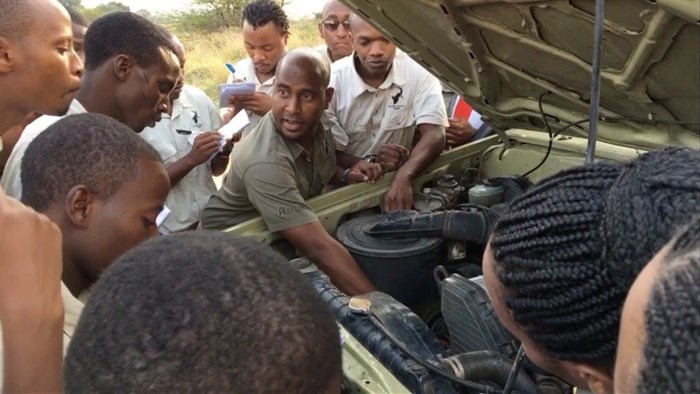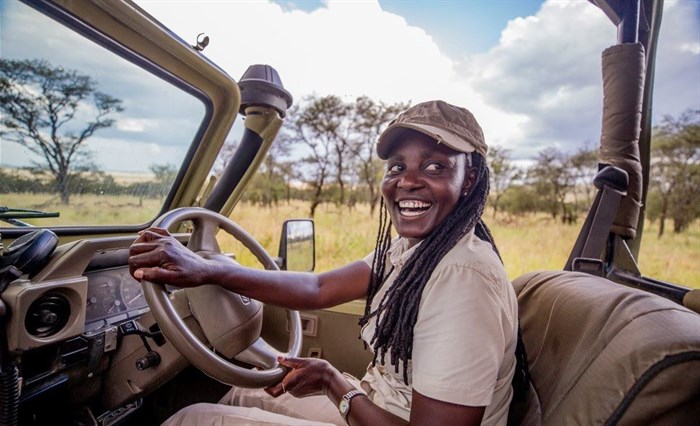Top stories




Focusing on employees under the age of 35, the scheme will enable them to cross-train into different hospitality roles. The aim of the programme is to help young people be more resilient to the economic shockwaves caused by the global Covid-19 pandemic.
The programme enables those already employed in a specific role to train and gain an additional, external qualification in a new role.
The programmes began in November and will run over an initial one-month foundation period, where students are educated in theoretical and practical basics of their particular hospitality disciplines by experienced professionals who are working in their disciplines. The remaining three to six months is intensive practical training where students are coached by a mentor in ‘live’ practical environments amidst paying clients/guests. The students are continually assessed according to a set practical programme where daily theoretical and weekly practical assessments are conducted by their mentors and monitored by their trainers.

In Africa, employee training is often based on peer training without a theoretical foundation, therefore the qualifications obtained cannot be transferred to a certificate or diploma. This makes it difficult for employees to provide documentation to new employers when they move on in their career.
Consequently, the training programme carried out at Asilia Africa is certified by internationally recognised training institutions within the hospitality and safari guiding sector. All participants will receive a diploma to prove that they have completed a professional training course.
Gerard Beaton, Asilia’s director of operations, says: "The shockwaves of Covid-19 have been profound around the world and no less felt in the remote communities and areas we operate. We hope that by offering this training at this time, we can empower our staff and help them to become multi-skilled, and improve their future prospects. We are also excited about the positive effect it will have on the service we are able to offer our guests in camp.’"
IFU’s support to train at Asilia is part of IFU’s overall effort to support companies and employees in handling the consequences of Covid-19. IFU has made an extraordinary commitment of DKK7.5m to IFU Sustainability Facility to support various efforts such as purchasing protective equipment and training employees in the project companies.
Emil Sierczynski, senior investment manager explains: "Many young Africans struggle to find ways to develop their skills and gain employment in the formal economy. IFU has a distinct focus on supporting people in gaining a stronger foothold on the job market and assisting our partner companies in ensuring decent jobs and demonstrating innovative ways of skill development. Asilia is a good example of a company acting in a socially responsible manner not least during the Covid-19 pandemic, and we are pleased to support their efforts."
Asilia is a leading safari company in East Africa with a footprint of 19 properties across Kenya, Tanzania and Zanzibar. Employing 700 people, vocational training and upskilling has always been at the heart of the organization. Thirty-percent of the staff are from local communities, and 30% of all management roles are held by women.
The total staff count is 99% from continental Africa, with less than 1% from outside of Africa. The 2018-19 year saw nearly 80,000 hours of training, development and upskilling of staff in four key programmes: Asilia Assistant Manager Training, Asilia Guide and Walking Guide Training, Asilia Chef Training, and Asilia Waiter/Service Training.
The company was one of the first in Tanzania to launch an in-house guide training programme in 2015, which incorporates walking guide training. Always pushing the boundaries, Asilia caused a stir in the industry a few years ago when an ad was placed in the local newspaper asking women to apply for the guide training programme. In 2014, one female guide qualified. The next year, two women qualified and now, Asilia is incredibly proud to have six upcoming female guides. Joining the 2021 guide training will be 10 young wildlife enthusiasts, five from Kenya and five from Tanzania.
Tourism is a crucial pillar of the economy in both Kenya and Tanzania, providing jobs both directly and indirectly and a valuable source of foreign currency. A recent study by the African Leadership’s School of Wildlife Conservation found that over 2 million tourists visited wildlife areas earning Kenya US$1.03bn in 2019, which contributes approximately 1.1% of the 2019 GDP.
Overall tourism contributed US$1.54bn in 2019 and provided employment for 1.6 million people, significantly in remote and rural areas where there are no alternative sources of income beyond subsistence farming. Since the start of the pandemic, a government survey has estimated that tourism has so far lost KES80B (US$750m) and almost 1.3 million jobs in the travel industry. It is a similar story in Tanzania, where it is estimated that earnings from tourism will decrease from US$2.6bn (about Sh6t) projected earlier to US$598m (Sh1.4t), a 77% decline.
Commercial director of Asilia, Gordie Owles comments: "Asilia chose, as Covid-19 struck, to not desert its duties to people, wilderness and wildlife. The results were that many of our teams were forced to learn new skills and adapt to a different way of working. We are very grateful to IFU for further empowering them through more formal learning and incredibly proud of the human growth we have seen through these challenging months."